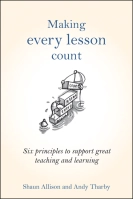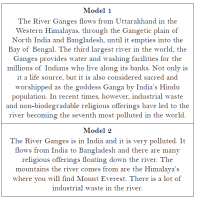The 15 minute forum tonight was led by geography teacher Ben Crockett. A few weeks ago, the ‘Blog of the week’ was this great one on metacognition by John Tomsett. This resonated with Ben, who then wanted to look into it more and try it out with his year 11 class.
An initial Google search suggested that this might be quite a complex business:
A further search simplified it slightly:
Put simply, metacognition is about how we go about preparing and dealing with challenges that we are faced with – “its thinking about thinking!”. The Education Endowment Foundation rate it as a ‘high impact, low cost’ strategy – read more here.
When we reflect on this, great teachers encourage metacognition frequently:
- When we come up with learning objectives and activities to reach these.
- When we model the best and most effective strategy to complete work.
- When we anticipate the errors and misconceptions the students will make.
- When we explain to students how to answer exam questions most effectively.
- How to pull out meanings from diagrams, charts etc.
Research shows that metacognitive skills can be taught to students to improve their learning (Nietfeld & Schraw, 2002; Thiede, Anderson, & Therriault, 2003). Individuals with well-developed metacognitive skills can think through a problem or approach a learning task, select appropriate strategies, and resolve the problem or successfully perform the task.
Following this initial research, Ben reflected on his current year 11 class – who are just weeks away from their GCSE exam:
- Are my year 11s ready?
- Do they still need to learn/revise knowledge?
- Why are they still making “silly” mistakes?
- Some seem to be rushing – why?
So, Ben did the following:
“I completed an exam paper, not answering the questions but writing on the paper what my brain would have been saying to itself had I been completing it. This is something that we, as subject specialists, do automatically, but it is something I am sure our students don’t do.”
The point was to demonstrate the thought processes that were taking place, when faced with an exam paper, by annotating the paper to show these thoughts. See below:
So this started on the front page, with comments like “This is vital Ben, structure and logic are important” – on the bullet point about the need for good English. Similarly, there was an annotated reminder to “use diagrams if you want“. Once inside the paper, the annotations focused on the following:
- Key and Command Words e.g. for a describe question, the annotation was to “say what you see“.
- Amount of marks – how many points required? If it’s a 1 mark answer, “keep it simple, one word” or for a 4 mark describe question “going to need lots of detail“
- Knowledge headlines required for question.
- SPaG – “Check your spelling and use of connectives”
- Possible structure for an answer e.g. “give a reason then back t up with an example“
- Lessons to call on “remember the lesson on the problems caused by ageing populations in the UK and France“.
- “Easy marks vs. Difficult needs more structure”
- Case study?
- Time keeping – “Half way through the paper, do I need to up the pace?”
- Keep calm
- Don’t sit like a lemon – go back and check!
Ben prepared the annotations on the paper before the lesson and then gave each student a copy, during the lesson. He then went through the annotations with them – as a way of describing what he was thinking about as he was approaching each question. Students had another blank paper (a different exam paper) – and had to add their own annotations, as the discussion went on, to demonstrate their thought processes for each question.
Since doing this, what has Ben noticed about how his students now respond to exam papers?
- There has been a marked reduction in the number of silly mistakes that students are making.
- It’s a great example of marginal gains – making lots of small improvements to make a big difference to overall exam performance. Students are definitely doing better in exam papers.
- Students are now keen to discuss with their peers what they are thinking about when tackling particular questions – this stimulates further thinking.
- Less waffle – students now write concise answers that get straight to the point. This is especially true of A*A students, who used to write too much.
- Answers now have a logical structure.
- Students are scoring an appropriate number of marks per question and not missing simple marks.
- Less time wasted = less rushing to get it finished!
- It’s a break from content led revision.
- Students feel more confident, because they feel ‘in control’ of the paper
- A question that students used to ask all the time was “How do you do it that fast sir?” – they don’t ask this anymore, as they are able to answer the paper far more efficiently.
- Students are now generally more confident about answering exam papers.
Next Steps
Model the thinking and model the answering at the same time. Ben used this as an exercise to help model to students what they should be thinking about, when they are tackling an exam paper – but they didn’t actually answer the questions. When he does it again, after discussing his thinking about each question, he will then model writing the answer – so demonstrating how the thinking translates into action.
Periscope users can watch the 15 minute forum here.














Reblogged this on The Echo Chamber.
Reblogged this on Create Great Schools and commented:
Great read on building skill sets for students through regular practice and feedback sessions whatever they might be. Regular feedback on students work helps get them thinking about their learning and where their improvement is.
This is brilliant. We have tried to get students to read through the questions to assess which one to choose in the EDEXCEL RS GCSE. A link to my very Bolton video can be found on our twitter page @tsc_re
Thanks
Pingback: Developing Metacognition Through Exam Practice | llssharinggoodpractice
Pingback: Why not try doing too many things and not enough things, both at the same time? | English Remnant World